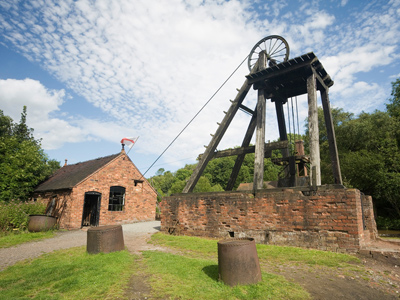
Ask the AI Tutor
Need help with The Industrial Revolution? Ask our AI Tutor!
AI Tutor - Lucy
Connecting with Tutor...
Please wait while we establish connection

See if you can get full marks in this quiz.
The Industrial Revolution
This GCSE Geography quiz looks at the Industrial Revolution, when new machines, factories, and transport networks transformed places, work, and trade in Britain and beyond.
1 .
Why did the Industrial Revolution lead to the building of canals throughout the UK?
To transport raw materials and manufactured goods
To enable the rural population easier access to factories
So that factory workers could use them for their leisure activities
To get water from one river to another
Canals existed in many parts of the world, including Britain, before the Industrial Revolution
2 .
Which of the following made industrialisation more likely in a particular location?
Good transport links
Available workforce
Local raw materials
All of the above
These factors kept manufacturing costs as low as possible and produced higher profits
3 .
Which of the following is a reason why the first factories were sited in the Derwent Valley of Derbyshire?
They relied on water to make their machinery work
They relied on coal to make their machinery work
They relied on natural gas to make their machinery work
They relied on horses to make their machinery work
The river Derwent was large enough to supply sufficient water to power large factories
4 .
During the Industrial Revolution in Britain:
the rural population increased
the country's economy moved from the primary to the secondary sector
charcoal was the main fuel used in factories
no new roads were built
Before the Industrial Revolution, the main British industry was agriculture. Manufacturing is the secondary sector of business
5 .
The Industrial Revolution caused which of the following?
An increase in wealth of rural areas
An increase in cottage industries
Urban to rural migration
Rural to urban migration
Factories often were developed in or on the edge of large towns and cities
6 .
Which raw material that was available locally, led to the establishment of a chemical industry in the area of Liverpool and Manchester?
Salt
Sugar
Acid
Wool
Underground deposits of salt in Cheshire were used to manaufacture several important chemicals that could be exported round the world from the port of Liverpool
7 .
Economic development is:
A measure of a country's wealth only
A measure of how a country's wealth is generated only
Both of the above
Neither of the above
The level of industrialisation of a country is an important factor in measuring its development
8 .
The county of Lincolnshire was not subjected to industrialisation during the Industrial Revolution. Which of the following is the most likely explanation?
There were no wealthy people living there so no-on could afford to build a factory
There were no mineral resources that could be mined to supply industry
The local people refused to have factories built there
The government passed a law preventing any factories from being built in Lincolnshire
Raw materials, a readily available workforce and good communications are factors that influence the siting of industry. Lincolnshire did not have these
9 .
The Bridgewater Canal was built for the Duke of Bridgewater who owned some coal mines at Worsley, to the north-west of Manchester. How did it affect industry in Manchester?
It had no effect on Manchester Industry
Factories could buy coal at cheaper prices
The Duke could get there more easily and spent more money with Manchester industries
Manchester Industries could send their products more easily to the Duke
Even if you know nothing about this canal, the clue to the answer lies in the question. This is a common tactic of the examiners which tests your ability to use your knowledge of economic geography
10 .
In terms of economic development, which of the following is considered as being less economically developed than the other options?
Banking
Steelmaking
Agriculture
ICT
Countries whose main industry is agriculture are considered as being less economically developed (LEDCS)
**Unlimited Quizzes Await You! 🚀**
Hey there, quiz champ! 🌟 You've already tackled today's free questions.
Ready for more?
Ready for more?
🔓 Unlock UNLIMITED Quizzes and challenge yourself every day. But that's
not all...
not all...
🔥 As a Subscriber you can join our thrilling "Daily Streak" against other
quizzers. Try to win a coveted spot on our Hall of Fame Page.
quizzers. Try to win a coveted spot on our Hall of Fame Page.
Don't miss out! Join us now and keep the fun rolling. 🎉
**Unlimited Quizzes Await You! 🚀**
Hey there, quiz champ! 🌟 You've already tackled today's free questions. Ready for more?
🔓 Unlock UNLIMITED Quizzes and challenge yourself every day. But that's not all...
🔥 As a Subscriber you can join our thrilling "Daily Streak" against other quizzers. Try to win a coveted spot on our Hall of Fame Page.
Don't miss out! Join us now and keep the fun rolling. 🎉






